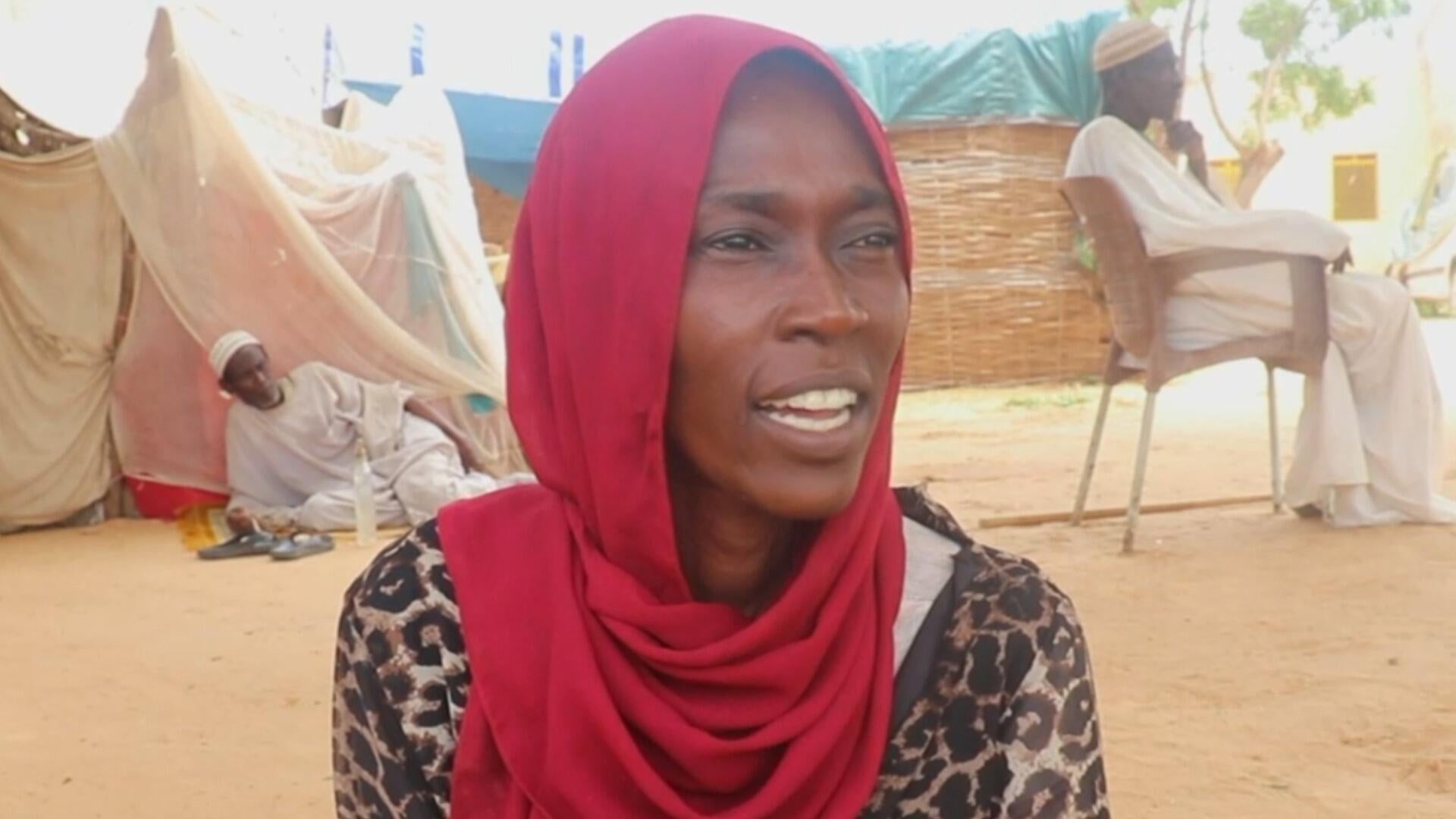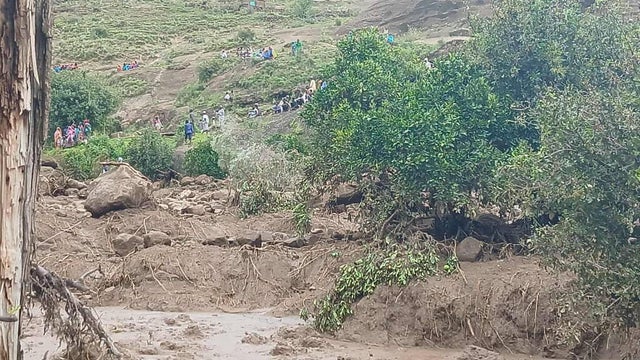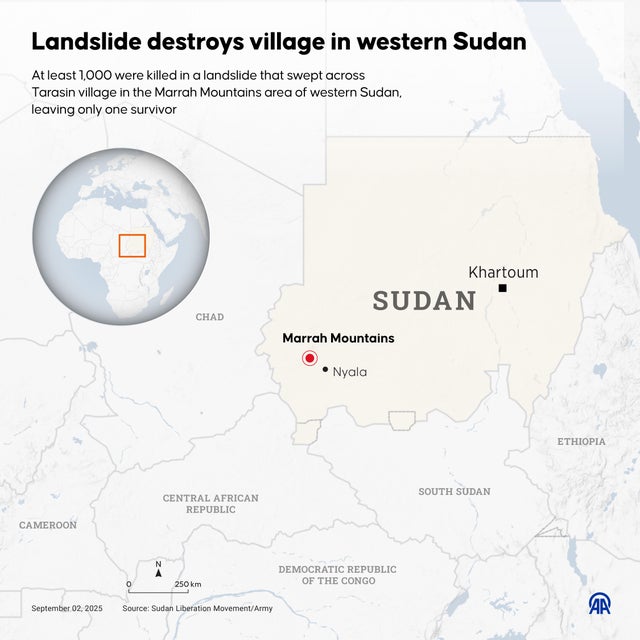Landslide in Sudan's war-torn Darfur region wipes out village, killing 1,000 people, rebel group says
Johannesburg — At least 1,000 people were killed on Sunday when a landslide swallowed an entire village in war-torn Sudan's Darfur region after days of heavy rain, the rebels who hold the region said Tuesday.
"Initial information indicates the death of all village residents, estimated to be more than one thousand individuals, with only one survivor," the Sudan Liberation Movement, which controls the area, said in a statement. It appealed to the international community for help for those around the decimated village of Tarasin.
The mountainous area is extremely difficult to reach, and it has become a refuge for people fleeing the violence of the civil war that has engulfed parts of Sudan, including Darfur, with thousands having arrived by foot in recent months.
Tarasin, in an area known for citrus farming, had seen days of heavy rains, which ultimately led to the landslide, which was one of the deadliest natural disasters to hit Sudan in recent history. But the Sudanese people have had no shortage of man-made suffering.
Fear Sudan's civil war poised to get worse
Sudan's civil war is now entering its third year. It has been fought largely between the Sudanese Armed Forces and a rival paramilitary group, the Rapid Support Forces. Tens of thousands of people are believed to have been killed since the fighting broke out more than two years ago, both from the violence directly, and from hunger and disease.
The war has left more than half of Sudan's population facing crisis levels of hunger, in what aid groups have labeled the single largest humanitarian crisis in the world.
The SLM, which announced the landslide, controls Tarasin and some other parts of the mountainous area in western Darfur, but the group has largely stayed out of the fighting.
The RSF controls most of the Darfur region, except the state capital El-Fasher, which its forces have had surrounded for more than 500 days. Over the past few days they have launched a new offensive, seeking to capture the last major city in Darfur not already under their control.
Hundreds of thousands of people are now trapped inside the city behind earthen walls newly built by the RSF forces, facing the threat of execution if they try to leave. Sources on the ground say there is little food left in El-Fasher, so local residents are slowly starving as artillery flies over their heads daily.
The Sudan Doctors Network medical group said Tuesday that overnight shelling of El-Fasher had killed 18 people and wounded more than 100 others, including women and children. The group said in a social media post that it was holding "the international community, the United Nations and the African Union fully responsible for their disgraced silence and failure to protect more than half a million civilians trapped inside El Fasher, who are being subjected daily to shelling, starvation, and slow death."
Yale University's Humanitarian Research Lab has analyzed satellite photos of El-Fasher that it says show the RSF moving quickly to build berms around the city.
"The RSF is creating a literal kill box around El-Fasher," the group warned in a report published late last week. More than 19 miles of earthen walls have been built since May 9, the group said in a statement provided along with satellite imagery on Aug. 27. "These berms will create physical boundaries to prevent smuggling goods like food and medicine into El-Fasher or people out of El-Fasher."
The United Nations children's agency UNICEF, in a statement last week,estimated that 260,000 people, including 130,000 children, remain trapped in "desperate conditions cut off from aid for more than 16 months."
International humanitarian organizations have been prevented from reaching El-Fasher by the RSF, and UNICEF has warned that, with no new supplies getting in, acute malnutrition is spreading. The agency has cited recent reports that during one week alone, 63 people, mainly women and children, died of malnutrition in the blockaded city.
Before El-Fasher was surrounded, UNICEF said it was treating some 6,000 children for severe acute malnutrition at health facilities in the city. Those children have now had their therapeutic food and medical care suspended.
"We are witnessing a devastating tragedy – children in El-Fasher are starving while UNICEF's lifesaving nutrition services are being blocked," the group's Executive Director Catherine Russell said in a statement in late August. "Blocking humanitarian access is a grave violation of children's rights, and the lives of children are hanging in the balance."



